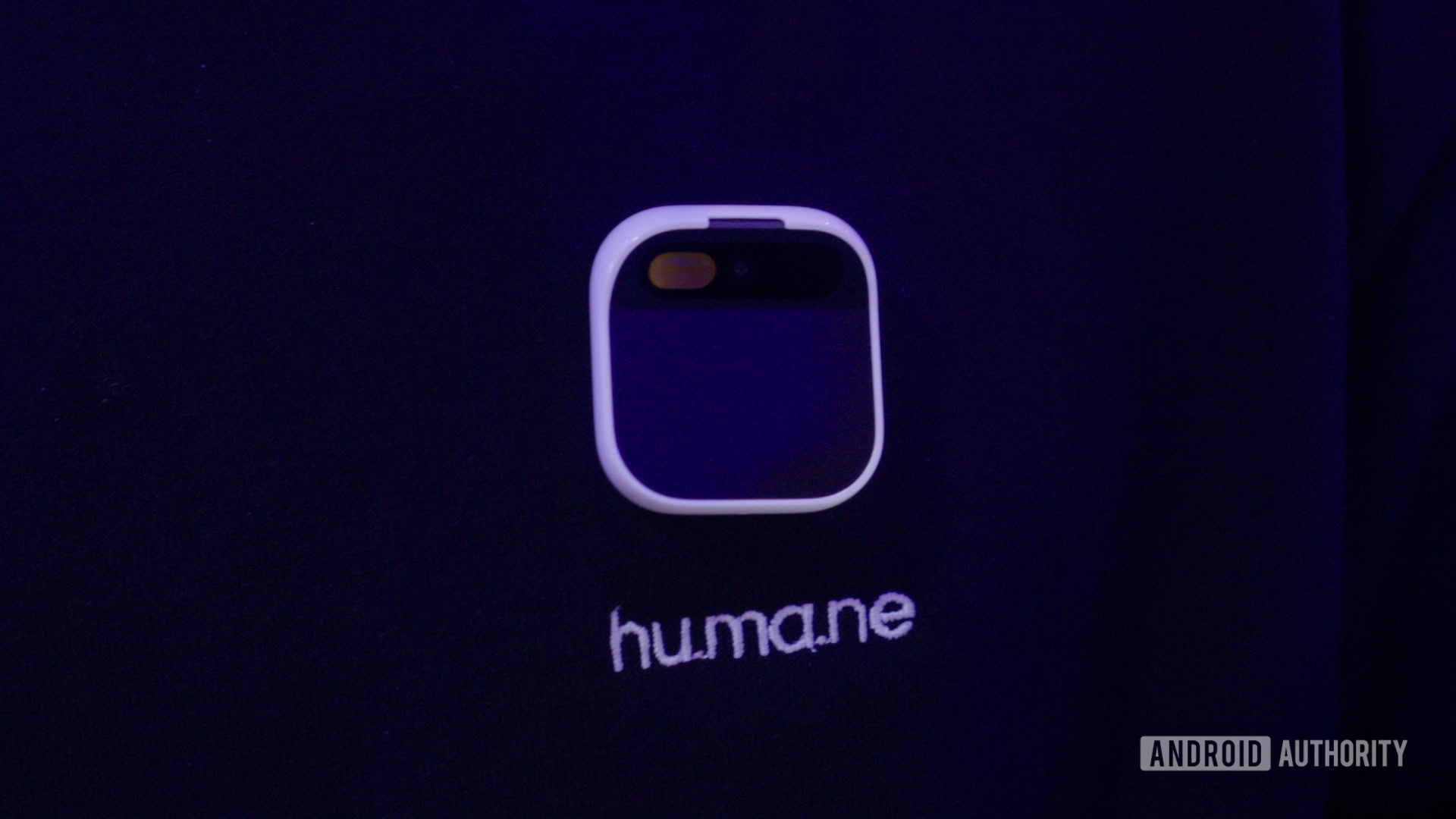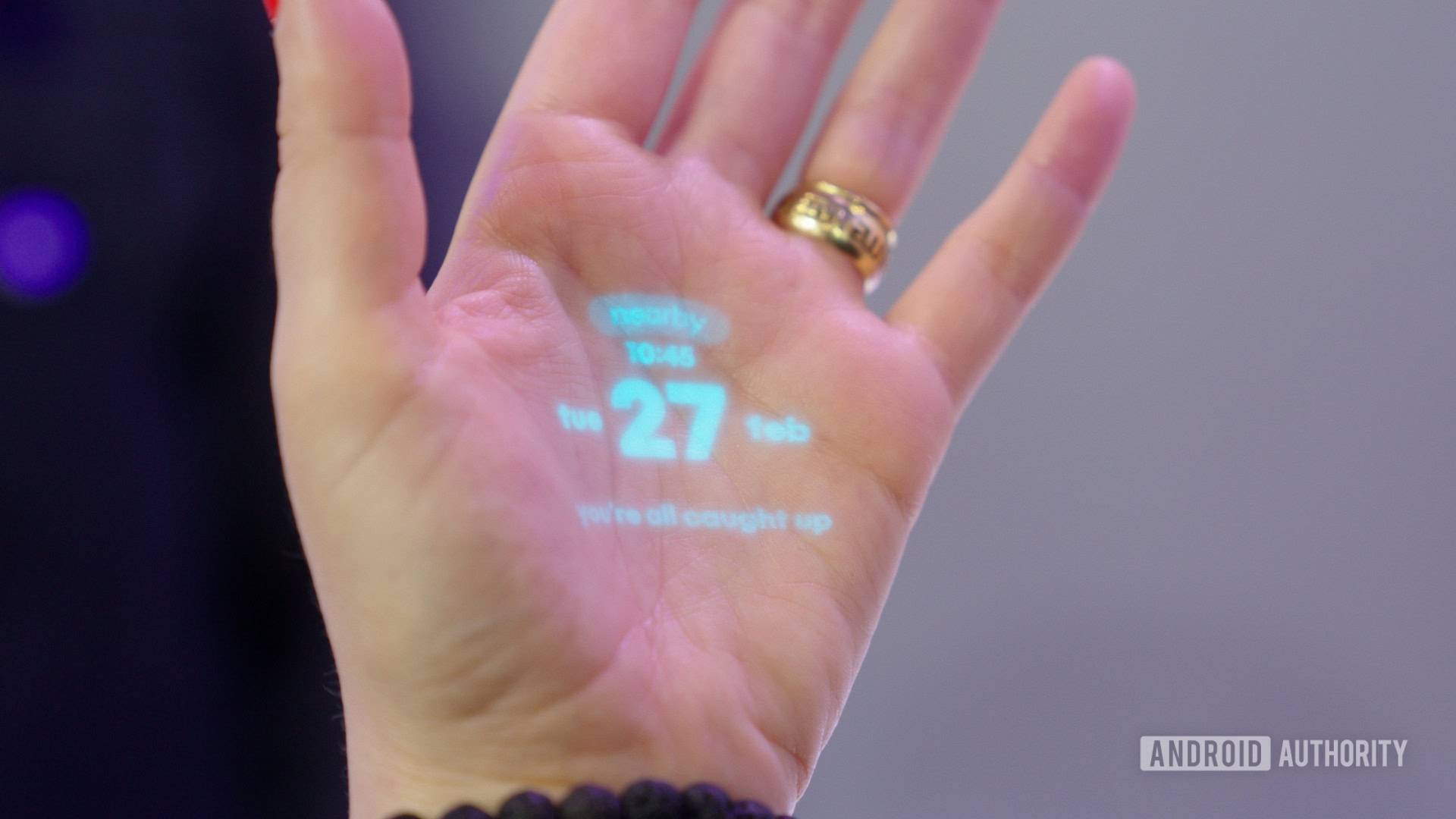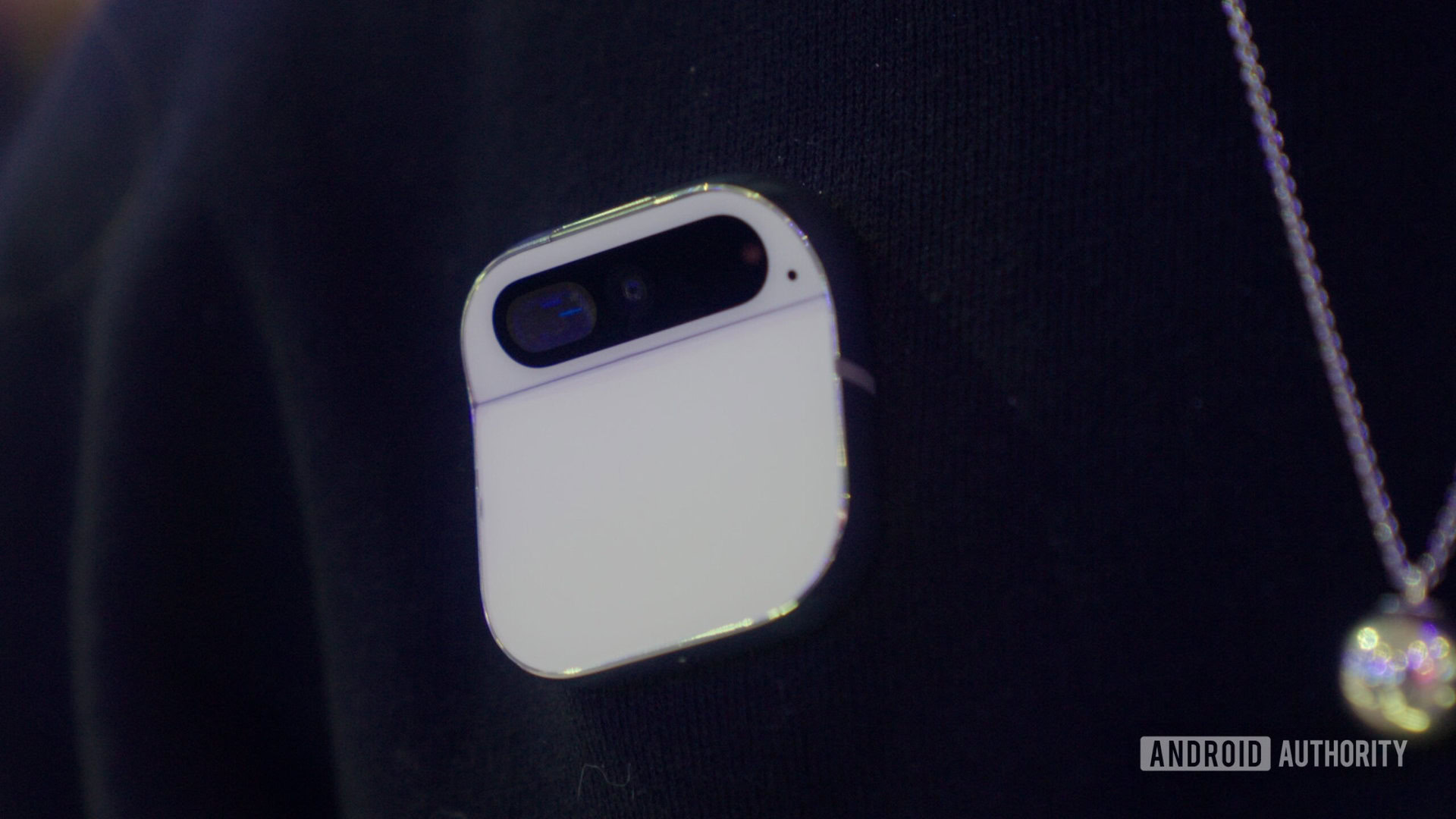Affiliate links on Android Authority may earn us a commission. Learn more.
Humane AI Pin first impressions: Fascinating or impractical?
Published onFebruary 29, 2024
Humane is pumping Red Bull-fueled energy and enthusiasm into its AI Pin showcase at MWC. The compact, square-shaped device invokes a sense of intrigue, even if it’s been shown off for months.
Created by two former Apple executives, Imran Chaudhri and Bethany Bongiorno, the Humane AI Pin first appeared on the tech scene last year, but it’s only available for pre-order, with shipments scheduled for March. At $700, it promises to free you from the distractions of your smartphone’s screen and offers an avant-garde way of computing — one that might be hella cool but, at the same time, quite restrictive as a standalone device.
Would you buy the Humane AI Pin?
“It’s essentially something that allows you to be more present and gives you a sense of freedom, mainly because of the AI operating system that we built up on top of Android core that allows it to really do a lot of work for you and really engage AI so you don’t have to manually do a lot of operations,” Chaudhri tells us as he demos the Humane AI Pin to me and my Android Authority colleagues away from its heavily crowded booth.
Humane's CosmOS takes advantage of multiple Large Language Models.
As I understood from our chat, the basic idea of the AI Pin is that it gives you a screen-free experience. You tap it to summon the AI and issue a voice command, asking it to read out your emails, summarize your texts, fetch your calendar events, find information on the internet, recognize objects and scenes in front of you, and much more. The AI can either answer back in its not-so-humane voice or project text on your hand using a tiny green laser projector.

Humane’s CosmOS — the software at the heart of the AI Pin — takes advantage of multiple Large Language Models, including Open AI’s ChatGPT. If like me you’re wondering how it handles the infamous AI hallucinations that result in inaccurate information, the company has a solution.
There is no app support on the Humane AI Pin.
“The piece about hallucination, there’s just a lot of work going on from Open AI as well as us. The way our architecture works is we go out and find the right thing you’re looking for. If it’s information that you want we try and get you the best and most accurate answers. Hallucination is something that comes when you go directly from the LLM. We don’t go directly from the LLM, we get it from the broader internet,” explains Chaudhri. It all seems very radical and well thought out until the impracticalities start to set in.
What I find unsettling is that there is no app support on the Humane AI Pin. The company has a few partnerships, including Slack, Tidal Music, Microsoft, and Google. So if you want to play music, you can only do so from Tidal. If you want to store photos and videos shot with the 13MP camera, you can only back them up on Humane’s own cloud services and sync them with Google Photos. Essentially, if you want your Humane AI Pin to interact with or get your information from other apps you use on a daily basis, you’re out of luck, at least for now.
According to Bongiorno, “There will be more (partnerships) coming out.”
“We do know people want things like Spotify, they want WhatsApp, these are all things that are on our prioritization list and a list of things we want to bring to the platform. We’re also working on an SDK, which will allow developers to build for our platform. We think that’s a really critical part of our software and the direction we are headed,” she says.

While the lack of app support is troubling, so is the nature of the device itself. The AI’s spoken responses and even projected text on the hand are not the most private ways of using a personal device. If you want the responses from the pin to be truly safe from prying eyes and ears, you’ll have to pair it with Bluetooth headphones or earbuds.
Then there’s the case of network connectivity and transferability. The Humane AI Pin has to be used with a subscription that includes a standalone T-Mobile phone plan, complete with its unique phone number. If you want the pin to receive and read out messages to you, the sender must send the texts to the pin’s phone number, not the primary number you use on your phone. There’s no way to transfer calls, messages, and other notifications from your phone to the pin.
The pin is a standalone device that works independently. It isn’t an accessory like your smartwatch or a pair of smart glasses. Also, if you ever decide to pass or sell the AI Pin to someone, you won’t be able to do so until the company starts supporting the feature.
It's hard to make a case for the Humane AI Pin right now.
“We know that over time, people are going to want to share their Pins. That’s not something we’re supporting right now. but it is something that we know people want, and we’ll be adding more features there over time,” says Bongiorno.

In conclusion, it’s hard to make a case for the Humane AI Pin right now. It’s an expensive investment for something that can’t fully replace your phone and will most certainly serve as a secondary device for those who buy it. On top of that, it ties you into a subscription service that doesn’t offer a whole lot right now in terms of service partnerships. Moreover, a lot of the AI processing on the phone happens off the device and needs an internet connection. So if you have poor connectivity or find yourself in a dead zone, you won’t be able to fully use the AI Pin’s features.
Is it something I’d want to spend $700 on? The answer is no, based on my limited access to the AI Pin at MWC 2024. We will get a chance to review the device pretty soon, which might change my mind. That said, I do find the pin exciting and wouldn’t mind rocking one on my lapel for a while, just for the sake of novelty.